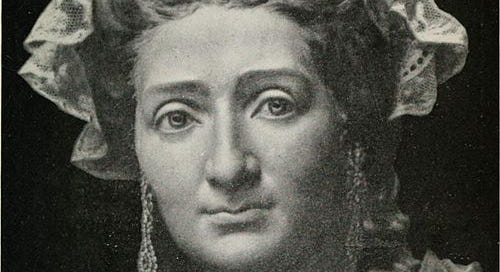It was a time of revolution. Bayonets and guillotines. Blood spilling through Parisian streets that normally glittered with ceremony and power. Surprisingly, it started not with the poorest but with the privileged. The nobles, stripped of their influence and reduced to ornaments of the court, grew restless. And the bourgeoisie, a rising middle class of merchants, lawyers, and writers, found fuel in Enlightenment ideas. One mourned its lost power. The other demanded its place. Together, they wanted reform. A softer crown. A gentler order. But in demanding change, they loosened something deeper. A ferocious vengeance aimed at the monarchy. It was unlike anything Europe had seen.
In the midst of it all was a woman with wax on her hands, preserving the faces of the royal family and of the revolutionaries who overthrew them. Marie Tussaud’s talent was exceptional. One day, it would bring her worldwide fame and a legacy that outlasted her years. But in that moment, she wasn’t working for history. She was carrying out orders: recording, in silence, what others destroyed in fury.
Marie's story begins in a quieter place. She was born Anna Maria Grosholtz in 1761 in the charming town of Strasbourg, France. Her father, a former soldier, had died from injuries suffered in battles a couple of months before her birth. Marie's mother, now alone and needing to care for the family, worked as a housekeeper for a doctor in Bern, Switzerland. His name was Philippe Curtius. Alongside his medical work, Philippe had found a gift for crafting wax models of the human body, which he used for teaching anatomy. Soon, he began sculpting faces.
Wax figures had a long history in the region, in medicine in particular. In churches across Europe, people would bring small wax figures of body parts inflicted with illness or injury to saints, offered as ex-votos. Prayers for healing. For mercy. For miracles. Wax was chosen for its softness and intimacy. It held warmth. It held shape. It held hope.
Keep reading with a 7-day free trial
Subscribe to Historical Snapshots to keep reading this post and get 7 days of free access to the full post archives.




